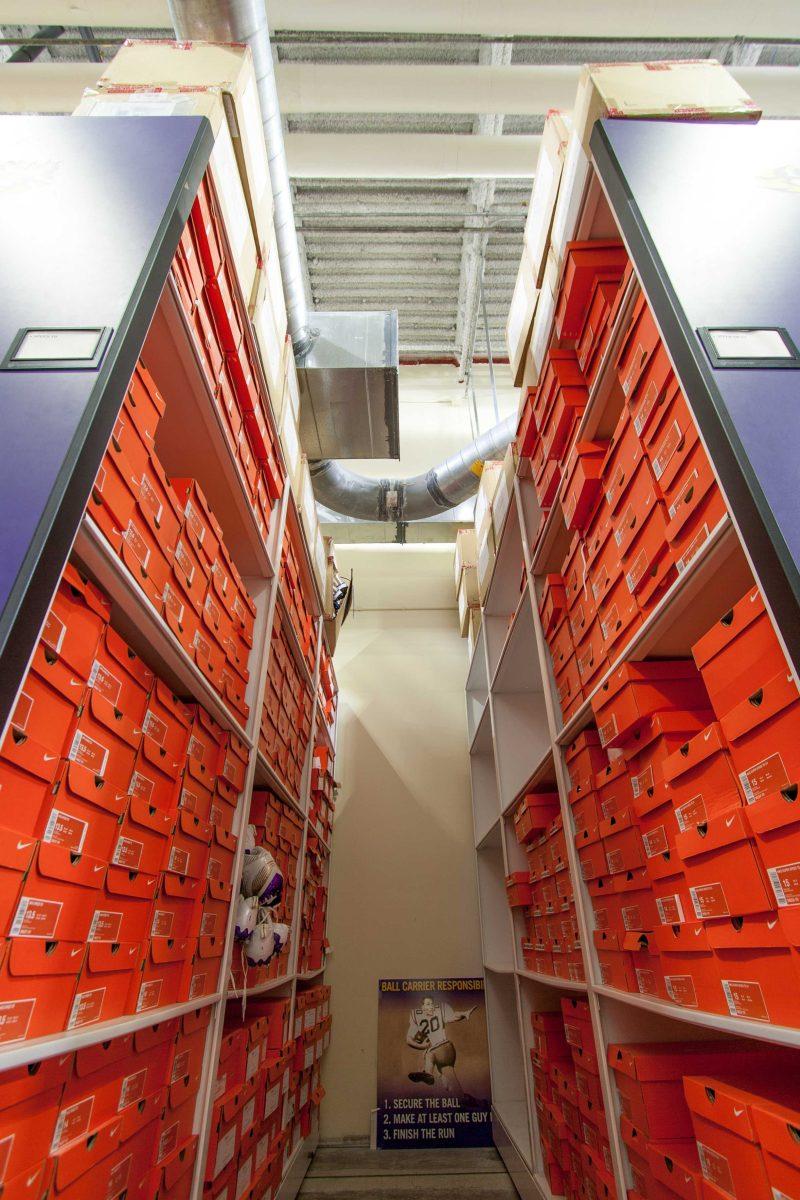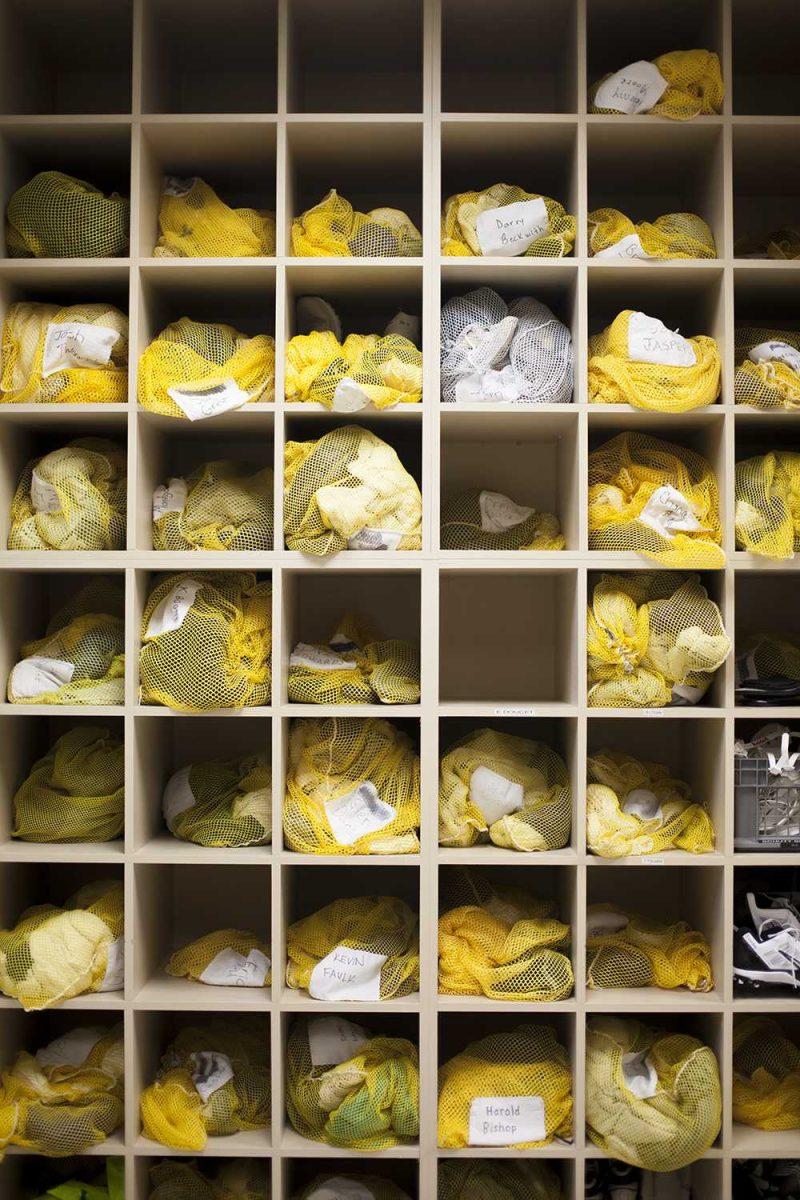No papers, no pencils. Not even a broken rubber band. NCAA athletes aren’t allowed to receive anything that could be interpreted as an extra benefit given because of their athletic status.
The NCAA Extra Benefits rule states that it is an NCAA violation for LSU student-athletes to receive anything not generally available to the rest of the student body. Extra benefits are advantages general students wouldn’t receive and can range from discounts or free entry into events.
The extra benefit rule has two functions, according to Senior Associate Athletic Director Miriam Segar. The goal of the rule is to maintain equity in the recruiting process as well as prohibiting the special treatment to athletes for being involved with a team.
The rule created in response to universities using various benefits to recruit student athletes. The rule also protects student-athletes like LSU freshman basketball center Derreyal Youngblood, who said when she got to LSU she found herself with “new” friends.
“People pretty much know me,” Youngblood said. “I don’t know how, I don’t why. It’s kind of crazy because people I’ve never seen a day in my life are like, ‘Hey, remember me’… And I’m like ‘oh hey what’s up.’”
Youngblood said people she’s never seen in her life come up to her and spark conversations, and she just goes with the flow of it.
Youngblood said she’s seen student-athletes being approached because of who they are and the sport that they play, but said it’s normal since LSU is such a small neighborhood within Baton Rouge where people are easy to spot.
But for people who knew these athletes before they were pushed into the state and national spotlight, rules meant to level the playing field may change their relationships.
Problems
Sports administration junior Alexis Guess works as a tutor at the Cox Academic Center for Student-Athletes, and she isn’t allowed to communicate with athletes despite having most of her classes with them. She was required to email her event management professor to switch her out of a group with the athletes.
The rule also affected her personal life. A few of her friends became athletes after she started her job at Cox, so her contact with them decreased.
“Because I’ve known [my friend] since freshman year, before I started tutoring, it is kind of sad all I can do is say “hi” to my friend,” Guess said. “We’re forbidden from having any contact with athletes outside of tutoring so it has changed things.”
But, Guess said the extra benefit rules help student athletes as they move on to the next level of their careers.
“If they play on the professional level I’m sure there are similar rules,” Guess said. “The rule also forces them to become more independent and professional.”
Geri Harding, recent graduate of the University, hadn’t had any relationship changes with her student-athlete friends that she has known since high school. However, she said it shouldn’t be that way.
“It’s crazy for an athlete to have to alter pre-existing relationship to conform to NCAA rules,” Harding said. “In some cases, it could result in them not getting things that regular students are able to get. If someone wants to give food to their friends, it shouldn’t matter if they are an athlete or not.”
Solutions
The rule ensures student-athletes don’t receive any benefits based on status, but a particular bylaw allows them to receive benefits in extreme circumstances. If a situation happened beyond the student’s control, the athletic department can fundraise to help the student-athlete for a specific purpose.
If a random student’s house burned down, that student would be able to receive benefits from anyone who felt free to donate. That wouldn’t be the case for student-athletes, which is why the miscellaneous benefits bylaw was put into place. Following a disaster beyond the athlete’s control (hurricanes, tornadoes, fires, etc), the bylaw allows the athletes to receive help and donations despite their student-athlete status.
LSU running back Alfred Blue lost his home in a fire, and under the rule, LSU was able to fundraise for Blue. The rule allows essential expenses to be reimbursed dollar-for-dollar. The parent buys essential expenses, it is receipted and documented and the money is refunded. If the fund raised more money than the family needed, the overflow goes to charity.
Segar said no one wants to be a recipient of that fund, because in order to receive anything the student would have had to lose everything.
“It’s a humanistic clause,” Segar said. “It’s a humanistic exception.”
Sports Swag
Although students are allowed to receive gifts from friends, they are draped in free purple and gold swag from head to toe, while their closets are full of multiple boxes of brand new shoes — all on the Athletic Department’s dime. But according to Compliance Director Andrew Donovan, each student-athlete is given every piece of uniform or equipment for a specific reason that coincides with his or her athletic duties.
“Everything they get there has a purpose behind it related to their participation for athletics,” Donovan said.
The athletes have sweatsuits, also known as warm-ups, which are used for travel. There is workout gear such as t-shirts, shorts and workout shoes. The students own game gear, which could include spikes, cleats, tennis shoes and uniforms.
Each individual sport has its own apparel budget, and within that budget it is decided what will be purchased for the student-athlete. Student-athletes in each sport will receive an equal amount of clothing, but Donovan said every year the budget for apparel within those sports varies.
“It’s really up to the coaches to work with the sport administrators and the senior staff at the athletics department to determine what they want to get for travel, equipment and apparel,” Donovan said. “There’s no magic formula for what they get.”
If apparel is not reusable such as workout t-shirts and workout shirts, student athletes can keep their gear. For helmets and shoulder pads, equipment and apparel that can’t be passed on, athletes can purchase those items once their eligibility is finished. If students lose gear, they will not receive anymore until the other items are returned. If gear needs to be replaced, then the student-athlete may have to purchase it through the athletic department.
Compliance monitors distribution of apparel and equipment closely to prevent situations like at Ohio State in 2010 and 2011. In 2011 the NCAA gave Ohio State a one-year bowl ban and served then-head football Coach Jim Tressel fines after football players were caught selling Buckeyes memorabilia and merchandise.
“So there are a lot of checks and balances, a lot of record keeping that goes into the disbursement of their apparel and the record keeping behind what have they turned in and what do they get to keep at the end of the year,” Donovan said.
Swag Breakdown
At almost every post-season event, whether it is the SEC basketball tournament or a football BCS bowl – athletes will receive a gift. Those gifts in the past have been iPads, iPods and even Beats by Dre headphones. When receiving gifts, athletes must sign for everything, and compliance travels to those events with the athletes to make sure the delivery of gifts is being handled in a proper manner and educate the athletes on how to handle the gifts.
2011 BCS Championship in New Orleans: Fossil watch, a New Era cap, Boxer and Stone cap and a gift suite, where game participants can select gifts (not to exceed the NCAA limit of $550 per person).
2012 Chick-fil-A bowl: $300 gift card, a Fossil watch, Russell Athletic Chick-fil-A Bowl hat, Russell Athletic travel bag and a Chick-fil-A gift card.










